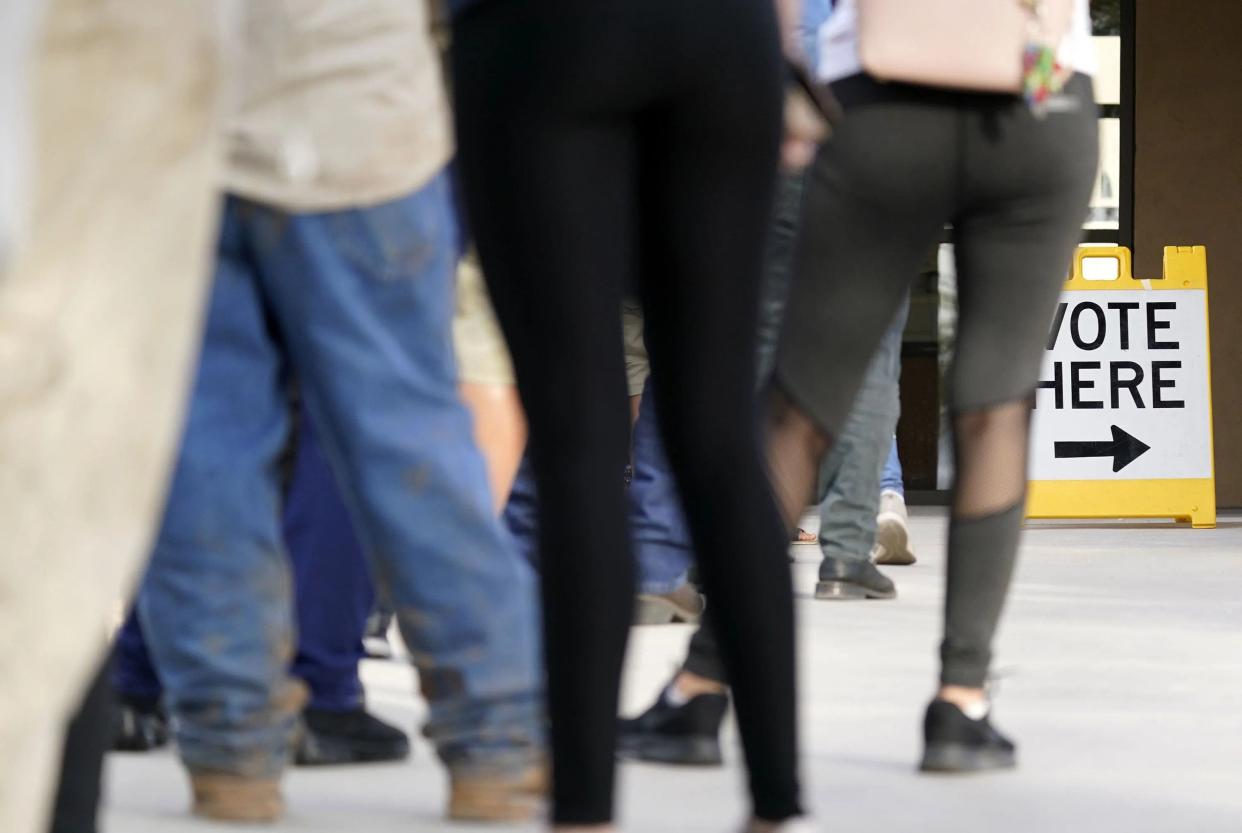Measure to protect more assets from debt collectors likely headed to Arizona ballot

An initiative that could protect more of Arizonans' assets from being sold to pay off medical and other debt likely will make the ballot this November.
The Predatory Debt Collection Protection Act would add protections against wage garnishment and increase the amount of money in homes, vehicles, bank accounts and household goods protected from being sold to pay off debt collectors.
The ballot initiative would limit the interest rate on medical debt to 3%, but the rest of its provisions would apply to all consumer debt, initiative organizers said.
The act would increase the amount of equity in a home protected from being taken by creditors to $400,000 from $250,000. It would raise vehicle protection to $15,000 from $6,000 ($25,000 for physically disabled drivers).
Supporters say the current debt protection numbers are outdated and the updates they propose reflect inflation.
The act also would raise the amount of money protected in a bank account to $5,000 from $300 and increase the value of household goods protected from creditors to $15,000 from $6,000.
These amounts would be adjusted annually for inflation, and aside from the interest rate cap, the protections would apply to all debt, not just medical debt.
The act was introduced last year by Healthcare Rising Arizona, a political action committee and a health advocacy organization with more than 1,200 members in Arizona. It receives support from SEIU-United Healthcare Workers West, a union of health care workers headquartered in Oakland, California.
For the act to make the ballot in November, Healthcare Rising Arizona needed to collect 237,645 valid signatures on its petitions – 10% of the votes cast for governor in the preceding election.
On Thursday morning, organizers turned in 472,296 signatures to the Secretary of State's Office.
Across the U.S., two-thirds of personal bankruptcies are caused by medical bills. “We are trying to avoid that cycle of poverty that people get drawn into,” said Rodd McLeod, spokesperson for Healthcare Rising Arizona.
Medical debt a big concern
Bill Ford, a 77-year-old Navy veteran, lived in rural Arizona for 35 years before moving to Buckeye 12 years ago. He became a member of Healthcare Rising Arizona in 2020 and has been gathering signatures for the Predatory Debt Collection Act.
“I've seen firsthand the struggles that people have obtaining affordable, accessible, quality health care in our state,” Ford said. “Especially in our rural communities.”
“My mother-in-law was a breast cancer survivor,” he said. “She thought she had a relapse, but put off going for medical prognosis because the family couldn't afford medical coverage. She put off receiving treatment until she aged into Medicare. By that time, it was too late and she passed away from cancer.”
For Ford’s family, medical debt left a lasting legacy.
“My wife’s first husband was diagnosed with cancer in his mid-30s. The family did not have access to affordable health coverage,” he said. “He passed away nine months later, leaving a widow with three young children with a mountain of medical debt that took years to pay down. When you die, your medical debt does not disappear.
“Credit card debt collection practices can trap families in a vicious cycle of debt and make it impossible to break free,” Ford said. “If someone gets sick or gets hurt and can't pay their medical bills, they can lose their car. If they lose their car, they can't go to work. If they can't work, they lose their homes.”
Urban Institute Credit Bureau data from 2022 shows that 27% of Arizonans have debt in collections: 20% of white Arizonans and 39% of Arizonans of color (defined by the study as any race other than white, or multiracial). Twelve percent of Arizonans have medical debt in collections: 10% of white Arizonans and 16% of Arizonans of color.
According to the 2022 Kaiser Family Foundation Health Care Debt Survey, four in 10 adults across the U.S. have some form of health care debt. And uninsured adults, women, Black and Hispanic adults, and people with lower incomes are especially likely to have health care debt. At least half of Black and Hispanic adults say they have debt from medical or dental bills, compared with 37% of white adults. And 62% of uninsured adults say they have health care debt, compared with 44% of insured adults.
Just under 14% of Arizonans under 65 don’t have health insurance, according to census data.

Detractors expected to fight initiative
The measure has its opponents.
“The most troubling misconception of this initiative and why we believe the initiative is so misleading to the community is due to the fact that it would eliminate debt collection for more than just what the title suggests: medical related expenses,” said Michael Guymon, president and CEO of the Tucson Metro Chamber of Commerce.
Guymon acknowledged that the intent of the ballot initiative is to assist those who are down on their luck and are being pursued by predatory debt collectors, but said it ultimately would harm those people more.
He pointed to the part of the ballot initiative that adds protections against wage garnishment, a legal procedure in which someone's earnings are withheld by an employer for the payment of debt.
The act states that a judgment debtor will only be subject to a 10% maximum withholding of wages, with a potential for reduction to 5%. The disposable earnings that can be garnished will be based off of the state minimum wage and changed from thirty times the minimum hourly wage to sixty times the minimum hourly wage.
Calculations done by the Tucson Metro Chamber of Commerce using state minimum wage from January 2023 found that this means that a person earning a W-2 income of less than $50,000 would be exempt from wage garnishment.
"If a lender cannot collect outstanding debts from a person earning $50,000 a year or less, why would they lend to them?” Guymon said.
As a result of the added protection against wage garnishment and the increased protections on homes and bank accounts, Guymon said that analysts estimate a "drop of over 70% in current and future wage garnishments that are in place to collect judgments that have been awarded to creditors in Arizona."
"People that owe money to these creditors, but make less than $50,000 a year, will not have to repay their debts," he said.
"This will negatively impact business owners, lenders, and the overall financial ecosystem in Arizona," Guymon said. "If Neighbor A is not having to repay debts owed, the 'cost of money' for Neighbor B will go up in the form of restricted money lending and higher interest rates."
On Wednesday, The Greater Phoenix Chamber released a statement saying that "the proposed measure would have a devastating impact on business in Arizona."
"The Chamber is opposed to a new initiative that would make it harder for lenders to collect on debts," Greater Phoenix Chamber President and CEO Todd Sanders said. "This could make it more difficult for people in Arizona to get access to credit and amplify the current housing affordability issue, making it more difficult for people to buy homes and start businesses in Arizona. The passage of this initiative would be a disaster for Arizona and should be avoided at all costs."
McLoed said, “We expect there to be a lawsuit and a real fight over it, but we think we will overcome the challenge.”
Madeleine Parrish covers equity issues for The Arizona Republic. Reach her at madeleine.parrish@gannett.com.
This article originally appeared on Arizona Republic: Measure limiting debt collections likely heading to ballot in Arizona

